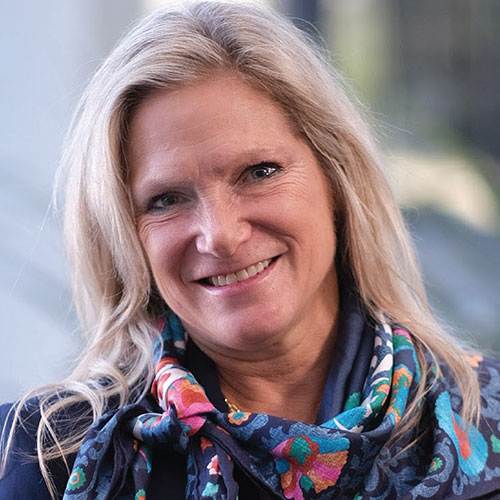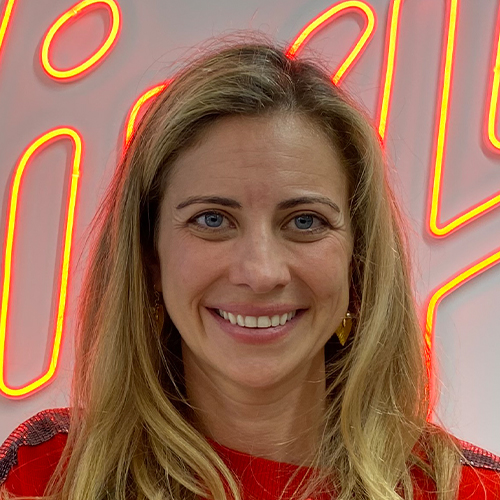Our panel of experts shares why flexible work policies and caregiver support programs are essential for empowering working parents.

Rae Shanahan
Chief Strategy Officer, Businessolver
What role do flexible work policies play in supporting working moms, and what best practices have you seen?
Flexible work hours give caregivers (and all employees) the freedom to balance their work, life, and caregiving responsibilities in a structure that works best for them. Our latest State of Workplace Empathy data found that caregivers value flexibility so much that they’re willing to take a pay cut or switch careers just to have the ability to balance work and life. Flexibility is one of the cheapest and most cost-effective benefits an employer can offer. This isn’t just about making time for daycare, school, or appointment drop-offs; it’s about giving employees real autonomy to take care of work, family, and their own well-being. If flexible work hours truly aren’t an option, consider what other benefits and policies you can put in place to help offset caregiving responsibilities, like subsidized daycare.
What innovative programs or benefits has your organization implemented to support working parents, and what impact have you seen?
Businessolver offers several programs and benefits to help our employees balance work and life. Grayce caregiving support helps alleviate a lot of the burden, confusion, and stress around caring for children, aging parents, and other dependents who need daily support. Our Workspace Anywhere (remote-first work environment) and MyTime (unlimited PTO) policies also support the diverse needs of our employees by providing the ability to be fully remote and take time away from work when they need it, without the added stress of managing a limited time off budget. Most importantly, though, we trust our people to get the work done. When your employees are happy and supported, they can bring a high-quality focus to their work.
What are the biggest challenges working moms face in the workplace today, and how can employers better address them?
Working parents, regardless of gender, are faced with increased mental health issues, particularly depression and anxiety, and a lack of flexibility to help balance caregiving alongside work and personal life. Our 2025 State of Workplace Empathy study shows that 52% of caregivers say flexible work hours are a “must-have” benefit, and 51% of caregivers would take a pay cut to work remotely. Employers can better support moms by offering flexibility and caregiving resources, and making mental health resources, like EAPs, more visible and accessible for employees.
How can companies create a more inclusive and supportive culture for parents, particularly mothers returning from parental leave?
Inclusion and support are rooted in empathy. At Businessolver, we offer mental health and caregiver support programs (such as Talkspace therapy) and maintain a remote workplace and flexible work hours to help parents transition back into their careers with less friction. We also offer parent support groups as part of our monthly employee wellness resource groups, where parents can connect and share resources, experiences, and advice. Above all, though, we work hard to maintain a culture where everyone feels fully supported both in their careers and their personal lives.
How can leadership and HR teams ensure working moms have equal opportunities for career growth and advancement?
Equal opportunity starts with visibility, flexibility, feedback, and representation. For working moms, rigid schedules and caregiving demands can unintentionally limit access to leadership pipelines. Providing flexibility, understanding the need to balance priorities outside of work, and listening to employee feedback not only helps working caregivers balance priorities but also helps build more equality across the business for career advancement, growth opportunities, and leadership.

Holly Branson
Chief Purpose and Vision Officer, Virgin Group
How do you balance work and family life?
It can be tough! As a mother of three children 8 years old and under, it’s hard to juggle work, life, play dates, homework, fun family time, and quality time with your partner. Every parent or guardian reading this will know exactly what I mean. Everyone’s situation is different and there is not one hard-and-fast way to find that balance — for many working mums and dads, they may never find it.
A couple of things that might help is to admit that it’s not easy, open up about your challenges, and don’t beat yourself up when things don’t go to plan. Being open, honest, and accepting that it’s normal to feel like you’re failing at parenting some days, and it’s normal to feel like you’re failing as a colleague or a friend the next day. It simply means you’re human and you’re doing your best.
The only thing that keeps me sane is meticulous scheduling to make sure I try and fit in time with everyone, including time for me each week. That’s easier said than done though!

Alexandra Taussig
Senior Vice President of Lifetime Client Engagement, Fidelity Investments
What is the biggest obstacle you faced during your career and how did you overcome it?
The most challenging time in my career was when I was raising three small children, and my husband and I were juggling demanding jobs. At the time, my husband Billy was practicing law, and I was beginning my career at Fidelity. We were trying to balance advancing our careers while still making time for our family, our relationship, and ourselves — there were never enough hours!
At times, it felt a bit like a house of cards and if one of those cards collapsed the whole thing could come tumbling down. I learned however, to give myself some grace, accept that life requires some give and take at times, and recognize that I was doing a pretty great job at being a working mother. I learned to carve out time for things that were truly important, such as date night with my husband or attending my boys’ games and school events, and worry less about the house being in perfect order every day.

Jennifer Bacarella
Executive and Director of Firm Development, Sigma Financial Corporation
What is the biggest obstacle you faced during your career and how did you overcome it?
Maintaining a work-life balance while being an executive, a financial advisor and a mother. I spent most days feeling guilty that I wasn’t succeeding at any of my three roles as there wasn’t enough time in the day. I had to really build a team that I could rely on, whose strengths were my weaknesses, who could help me succeed in ways I never could alone. What blossomed from that was the opportunity to be a mentor, and help so many individuals reach their own goals so that we were successful together.

